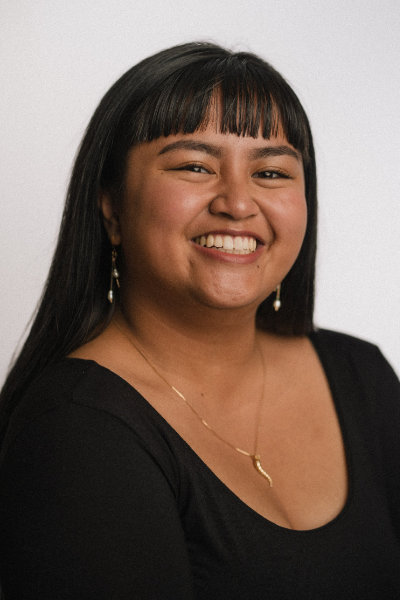August 16, 2023 - Kathleen Zaragosa’s family left the Philippines for Canada in 1997 before she was born.
Even though she grew up in Vancouver amid a dominant Western culture, Zaragosa has preserved a great deal of her Filipino heritage. She was able to do this through the language of her forebears.
 Kathleen Zaragosa understands Oasnon, which is spoken in the town of Oas in the Philippine province of Albay.
Kathleen Zaragosa understands Oasnon, which is spoken in the town of Oas in the Philippine province of Albay.
“I know conversational Tagalog, and I’m slowly learning how to speak my family’s heritage language called Oasnon,” Zaragosa notes in a written interview.
Tagalog is the foundation of Filipino, which is the national language in the Philippines.
Oasnon is spoken in Oas, a town in the province of Albay in the southern part of Luzon island. That’s where her family came from before eventually settling in Manila.
“I can understand it fairly well,” she states.
Zaragosa took her interest in Philippine languages to another level when she was completing her undergraduate degree in cognitive systems at UBC.
“I did a UBC research project back in 2020 to see whether younger generations learn and use these languages,” says Zaragosa. “I was so inspired by the experience that I am now continuing this research by pursuing graduate school in Toronto.”
This fall, Zaragosa will be starting her master’s studies in language and literacies education at the University of Toronto.
It was also the same research experience that led her to co-found the Sliced Mango Collective, a group that focuses on issues related to Filipinx culture and identity.
Meanwhile, Zaragosa will relate her own experience at a free Downtown Vancouver event that was inspired by the work she did as a UBC student.
The gathering, entitled “To Speak in Community: A Gathering of Philippine Languages and Cultures”, will be held at the UBC Robson Square (800 Robson Street) on Saturday (August 19) from 11 a.m. to 3 p.m.
“This event was born out of my wanting to share some of what I’ve learned with my community in Vancouver before my next chapter,” Zaragosa says.
“I plan to share some of my stories and lessons from how I’ve been learning at home, from my lola [Tagalog word for grandmother] and Mom teaching me how to sing kundiman [traditional Filipino love songs] as a kid to practising with people working at Filipino restaurants and businesses.”
Zaragosa notes that the gathering will be a mix of community presentations and arts performances that promote Philippine culture and explore the diversity of languages in the Philippines.
The World Atlas notes that the Philippines is a multi-lingual country, with more than 150 languages.
“I hope that this event gathers our community to celebrate the everyday experiences of our culture, and think about ways to better promote language learning, especially for those who have been born and raised away from the Philippines,” Zaragosa says.
Other speakers include John Paul (JP) Catungal, an assistant professor of critical race and ethnic studies in UBC’s Institute for Gender, Race, Sexuality and Social Justice, and UBC-trained mezzo soprano Alyssa Samson.
To Speak in Community: A Gathering of Philippine Languages and Cultures will be held at the UBC Robson Square (800 Robson Street) on Saturday (August 19) from 11 a.m. to 3 p.m. Follow Carlito Pablo on Twitter @carlitopablo. Follow CanadianFilipino.Net on Twitter @iamcanadianfil.

